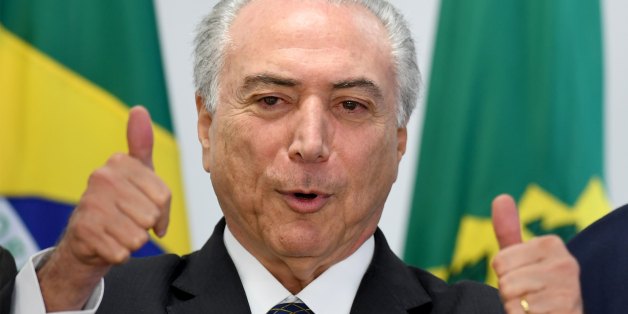This material belongs to: The Washington Post.
A day after being convicted of corruption, former President Luiz Inacio Lula da Silva stoked those flames Thursday with a defiant public defense accusing his political opponents of trying to prevent him from becoming president again.
Federal judge Sergio Moro, hailed by many Brazilians as a hero and by others as a zealot, found Silva guilty Wednesday and sentenced him to nearly 10 years in prison, though the charismatic leader remains free while an appeal is heard.
The man popularly known as simply “Lula” told supporters the court had no proof and the conviction was politically motivated. As he grew increasingly animated while speaking, beads of sweat collected on his forehead.
To cheers, he said he wants to run for re-election next year.
“If anyone thinks that with this sentence they will pull me out of the game, they should know that I am in the game,” Silva said. “The only people who can declare my end are the Brazilian people.”
At various points the crowd broke into cheers of “Lula for president!” A supporter raised a poster behind him that read, “Election without Lula is a fraud.”
His case now goes before a group of magistrates, and one of those judges promised Thursday that action will be taken before the October 2018 elections. If they uphold the conviction, Brazilian law says Silva would be barred from seeking office.
“By August next year, this case will be decided,” said Judge Carlos Eduardo Thompson, chairman of the court that will hear the appeal. “Either the court will confirm this decision and he will be unelectable or it will amend the decision and he will be able to run.”
Three judges are expected to be part of that trial: Joao Pedro Gebran Neto, who has mostly upheld or increased sentences given by Moro, plus Victor Laus and Leandro Paulsen, both seen as more unpredictable.
Silva was accused of receiving a beachfront apartment and repairs to the property as kickbacks from construction company OAS. He never owned the apartment, but prosecutors argued it was intended for him.
Silva is the highest-profile figure to be convicted in the corruption investigation so far, and the first Brazilian ex-president to be found guilty in a criminal proceeding at least since the restoration of democracy in the 1980s.
He was Brazil’s first working-class president and remains beloved in many quarters, though the corruption probe has dented his reputation. He faces charges in four other cases but has been considered a front-runner for next year’s election.
He left office at the end of 2010 with sky-high popularity after riding an economic boom to fund social programs that pulled millions out of poverty and expanding the international role of Latin America’s biggest nation.
Prosecutors said they would appeal seeking to increase the 9½-year sentence.
 info@anticorr.media
info@anticorr.media

